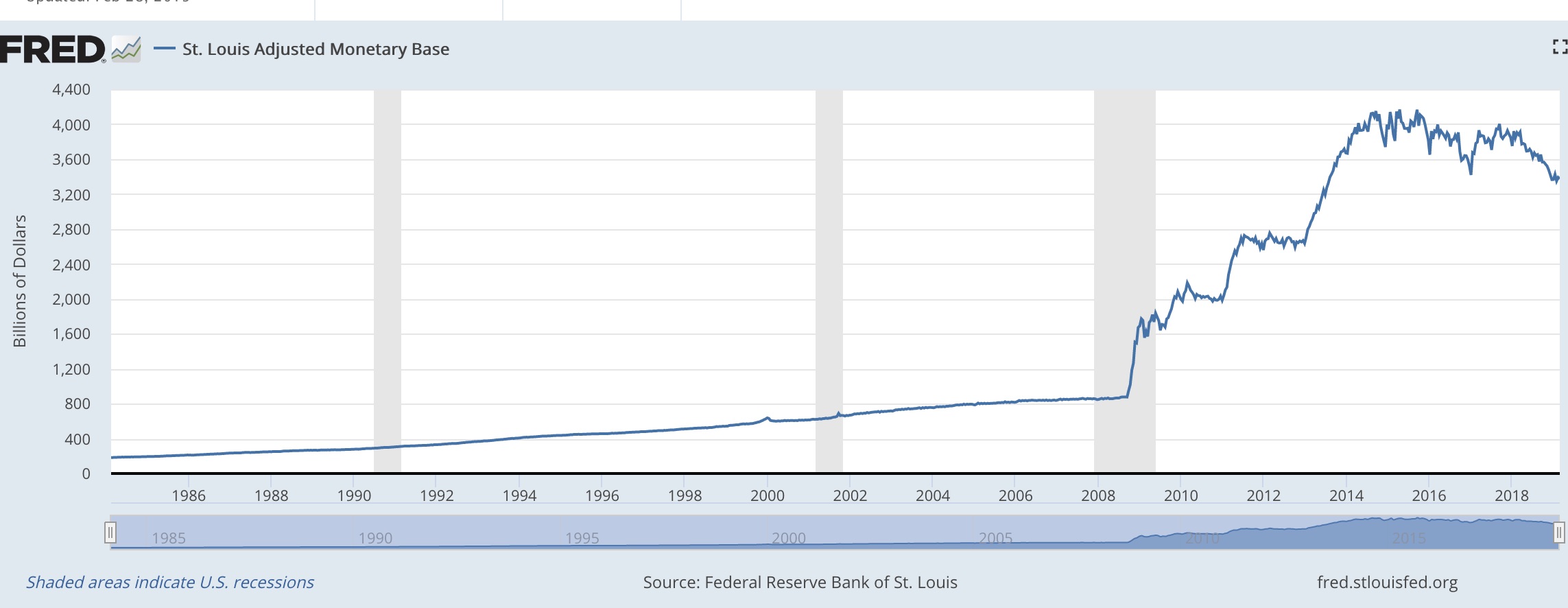I haven’t been blogging at Crooked Timber as much as I used to. That doesn’t mean I haven’t been active – the last two years have probably been the most productive two years of my life (it turns out that my way of dealing with political stress is to write. and write. and write – more on that as the stuff I have been up to comes out). But it’s hard to resist noting Brad DeLong’s <a href=”https://www.vox.com/policy-and-politics/2019/3/4/18246381/democrats-clinton-sanders-left-brad-delong”>very good interview</a>, and Mike Konczal’s response to it. Brad:
<blockquote>Until something non-rubble-ish is built in the Republican center, what might be good incremental policies just cannot be successfully implemented in an America as we know it today. We need Medicare-for-all, funded by a carbon tax, with a whole bunch of UBI rebates for the poor and public investment in green technologies. That’s the best policy given the political-economic context. If the political-economic context were different — well, I’m fundamentally a neoliberal shill. It is very nice to use market means to social democratic ends when they are more effective, and they often are. If you can properly tweak market prices, you then don’t just have one smart guy trying to design a policy that advances an objective — you have 30 million people all over the country, all incentivized to design a policy. That’s a wonderful thing to have.</blockquote>
Mike:
<blockquote>Delong focuses on the political aspect of this shift, noting that there is nothing on the conservative Right that meets left-leaning neoliberals halfway to try and negotiate market-based policies. “Barack Obama rolls into office with Mitt Romney’s health care policy, with John McCain’s climate policy, with Bill Clinton’s tax policy, and George H.W. Bush’s foreign policy,” and yet conservatives give him zero credit, call him a socialist, and actually attack each of these ideas just as much as they would more ultra-left policies. … I’ve also carried a rifle in this battle, trying to move the party Left—and it is happening. But this movement is happening largely because the story that left neoliberals tell us all about the economy itself, not just the politics of it, has fallen apart. … This is a matter of ideas: ideas having failed, and us needing new ones. … The positive effects of more inequality never happened. … we are seeing a revival of structural arguments that wages are increasingly determined by institutional structures rather than individual measures. … Relaxation of antitrust enforcement would lead to more competition and innovation, as was told. Unions would no longer get in the way of businesses. [but] …  firm dynamism has fallen dramatically. The rate of business startups has fallen. … high markups and profits, low interest rates, weak investment—point to a significant market power problem that impacts the macroeconomy.</blockquote>
Mike is building on the old Internet argument about ‘left neoliberalism’ (a term that I semi-accidentally popularized; but the best and most succinct <a href=”http://bactra.org/weblog/778.html”>account was Cosma’s</a>). It’s notable that the people like Brad, Matt Yglesias and Ezra Klein who got grief in that debate have moved significantly to the left in the interim: Brad’s interview is a formal acknowledgment of a shift that has been taking place for a long time. Which is not to say that they are going to join the DSA, but that just as there’s a significant distinction between social democrats and democratic socialists, they have plausibly changed from being left neoliberals to neoliberal leftists. It isn’t just that they want neoliberal tools to deliver left-leaning results; they have always wanted that. It is that they tacitly or explicitly realize that preferred neoliberal means of policy delivery need to be embedded in a framework that is being built up by a broader social movement.
Two questions follow (for me, anyway). One is for the neoliberal leftists, as a part of a broader left coalition. When and to what extent will their preferred approach to delivering policy clash with, or undermine, the necessary conditions for achieving collective action and making the policy sustainable? If they are pushing for market means towards social democratic ends, that is fine and good – markets can indeed sometimes be the best way to deliver those ends, and few of us would want to be completely without them (including Marxists like <a href=”https://catalyst-journal.com/vol2/no3/socialism-for-realists”>Sam Gindin</a>. But one key lesson of the last couple of decades is that market provision of benefits makes it harder to build and sustain coalitions – private gain and public solidarity are at best uncomfortable bedfellows. Figuring out the political tradeoffs – when market means are worthwhile even when they make collective action tougher, or where non-market means might be better for sustainability reasons, even when markets are more efficient – is going to be hard, and we need to start building shared language and concepts to make it easier to resolve the inevitable disputes.
The other is for the left including both its neoliberal and non-neoliberal variants. It is clear why Brad and others are jumping ship – apart from the intellectual problems that Mike describes, there isn’t a politically viable there there to their right. But I am not as sure as I would like to be about the there there to their left either. The left is enjoying a resurgence in the US (not so much elsewhere). There are coalitions being formed, plans being conceived. But there are enormous obstacles to be overcome. First in the US (where the system seems almost deliberately designed to prevent the radical action required e.g. to tackle global warming, and where billionaires can credibly threaten to pull down the election if the Democratic candidate is not to their liking). Second, at the global level, where the soi-disant liberal order is in decay, and it is not clear that there is very much that is going to replace it. There may be no plausible choice in American politics other than the left right now. That doesn’t mean that the left has a very good chance of doing the things that it needs to do.


